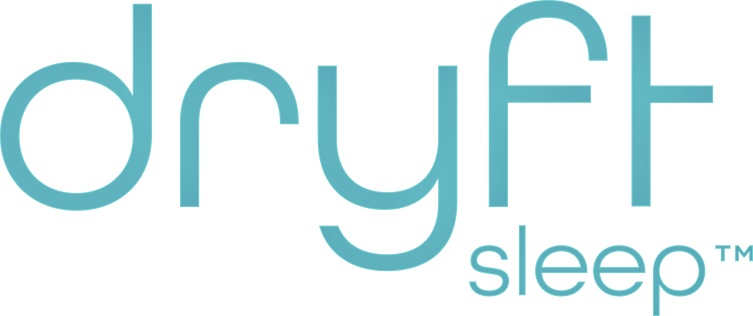15 Sleep-Inducing Foods: What to Eat for a Good Night's Rest

If you're anything like us, you know that a good night's sleep is the unsung hero of a productive day. But did you ever stop to think about the connection between what's on your dinner plate and how well you hit the hay? Yep, it's a thing. And it's not just about avoiding that late-night caffeine jolt from your favorite cola or coffee.
Sleep, that sweet escape we all cherish, isn't just about getting cozy under the covers. It's a complex dance of biology, environment, and—yep, you guessed it—nutrition. We all know the basics: avoid caffeine before bed, maybe skip that late-night snack. But what if we flipped the script? Instead of focusing on what to avoid, let's chat about what to munch on for some quality Zzz's.
Now, before we dive into this mouth-watering list of sleep-inducing foods, let's get a bit nerdy for a sec. Ever wondered why certain foods make you feel all drowsy and ready for dreamland? Well, there's some cool science behind that. And trust us, it's not as snooze-worthy as it sounds. Stick around as we unravel the delicious connection between sleep and nutrition in our next section.
The Science Behind Sleep and Nutrition
When we talk about sleep, we're not just talking about that blissful state where we're off in dreamland, fighting dragons or flying over cities. Nope, sleep is a complex physiological process, and what we eat plays a starring role in that nightly performance.
First things first: Melatonin. Think of it as the body's natural alarm clock. When it's time to wind down, melatonin levels rise, signaling to our bodies that it's time to get some shut-eye. And when it's time to wake up? Those levels drop. Now, here's the fun part: certain foods can actually boost melatonin production. So, if you're chowing down on the right stuff, you're giving your body a little extra help in the sleep department.
Next up, Tryptophan. Sounds like something out of a sci-fi movie, right? But it's actually an amino acid that's crucial for sleep. Why? Because it's a precursor to serotonin, which can then be converted into melatonin. It's like a domino effect, and it all starts with what's on your plate.
But let's not forget about Magnesium and Calcium. These aren't just minerals you gloss over in a nutrition class. They play a role in how our brains process that tryptophan we just talked about. So, if you're deficient in either, it could throw a wrench in your sleep game.
Now, here's a curveball for you: Digestion. Ever had a massive meal and then tried to hit the sack? Not the best idea. Digestion requires energy, and if your body's working overtime to break down a feast, it might not be ready for rest. That's why light, easily digestible foods can be your best friend come bedtime.
Alright, enough with the science talk. Let's get to the good stuff. If you're wondering which foods pack all these sleep-promoting benefits, you're in for a treat. Up next, we've got a list that's not only delicious but might just be the ticket to your best night's sleep yet. Ready to dig in?
15 Sleep-Inducing Foods
Alright, grab your grocery lists because you're gonna want to jot these down. Here's the lowdown on foods that'll help you catch those Zzz's:
- Chamomile Tea: Not just your grandma's favorite brew. This calming tea can help increase glycine, a chemical that relaxes nerves and muscles.
- Turkey: Ever feel drowsy after Thanksgiving dinner? Thank the tryptophan in that turkey for your post-feast nap.
- Almonds: These crunchy delights are packed with magnesium, which can help improve sleep quality, especially for those who have insomnia.
- Kiwi: These fuzzy fruits are not only delicious but also have antioxidants and serotonin that can help regulate sleep.
- Bananas: They're like nature's sleep aid, packed with magnesium, potassium, and tryptophan.
- Walnuts: Another nutty sleep enhancer, thanks to their own source of tryptophan and melatonin.
- Passionfruit Tea: Sip on this before bed, and the harman alkaloids might just help improve your sleep quality.
- White Rice: The high glycemic index can increase insulin and tryptophan production, leading to an easier time drifting off.
- Oats: Rich in melatonin, having a bowl of oatmeal might just set you up for a cozy night.
- Tart Cherry Juice: A natural source of melatonin and tryptophan. Cheers to that!
- Valerian Root: Often found in teas, this herb can act as a sedative, helping you fall asleep faster.
- Milk: Warm or cold, the tryptophan and calcium in milk can be a great pre-bedtime drink.
- Lettuce: Contains lactucarium, which has sedative properties. Maybe a bedtime salad is in order?
- Honey: A spoonful can help regulate insulin and tryptophan production. Sweet dreams!
- Fatty Fish: Think salmon or tuna. The omega-3 fatty acids and vitamin D can help regulate serotonin, setting you up for a restful night.
Now, while munching on these might give you a head start in the sleep department, there's more to the story. Food is just one piece of the puzzle. If you're looking to truly master the art of restful sleep, there are other natural tricks and habits you can adopt. And trust us, they're game-changers. Ready to dive deeper into the world of sleep? Let's roll!
Other Natural Ways to Promote Sleep
We have now covered the food front, but let's not stop there. Sleep's a multifaceted gig, and there's more than one way to set the stage for a stellar night. So, if you're all about maximizing those sleep gains, check out these natural hacks:
-
Consistent Sleep Schedule: Yep, even on weekends. Our bodies love routine. Going to bed and waking up at the same time daily can help regulate your body's internal clock. Before you know it, you'll be waking up refreshed, no alarm needed.
-
Limit Screen Time: Those late-night TikTok scrolls or Netflix binges? Might be time to hit pause. The blue light from screens can mess with melatonin production. Try winding down with a book or some chill tunes instead.
-
Create a Sleep Sanctuary: Make your bedroom a haven for sleep. Dark, quiet, and cool is the name of the game. Consider blackout curtains, earplugs, or a white noise machine to set the mood.
-
Mindful Relaxation: Ever tried meditation or deep breathing exercises? They can be a game-changer in calming the mind and prepping your body for rest.
-
Limit Caffeine and Alcohol: That 4 pm coffee or evening glass of wine might be affecting your sleep more than you think. Try cutting back or adjusting when you indulge.
-
Get Moving: Regular physical activity can help regulate your sleep patterns. But try to avoid intense workouts right before bed; they might leave you more wired than tired.
-
Ditch the Naps: If you're struggling to sleep at night, those afternoon siestas might be the culprit. If you really need one, keep it short and sweet.
- Natural Sleep Aids: Consider supplements like magnesium or herbal remedies like valerian root. But always chat with a doc before diving in.
- Mind Your Breathing: Believe it or not, how you breathe can impact your sleep. Nose breathing can enhance sleep quality and even reduce snoring. And if you're looking for a little boost in this department, products like Dryft Sleep mouth tape can be a game-changer.
Alright, sleep warriors, there you have it. A toolkit of natural ways to up your sleep game. Remember, it's not just about quantity but quality. So, experiment, find what works for you, and here's to some dreamy nights ahead!
Conclusion
Sleep, as we've discovered, isn't just about hitting the pillow and hoping for the best. It's an art, a science, and a lifestyle choice all rolled into one. From the foods we eat to the habits we cultivate, every choice can inch us closer to that elusive perfect night's rest. And in a world that's always on the go, prioritizing sleep isn't just a luxury—it's a necessity. So, whether you're sipping on chamomile tea, setting a sleep schedule, or giving Dryft Sleep mouth tape a whirl, remember: every step is a step towards better health, wellness, and those sweet, sweet dreams. Sleep tight, folks!
TL;DR
- Certain foods, like turkey, almonds, and kiwi, can naturally promote better sleep.
- It's not just about food; habits like a consistent sleep schedule, limiting screen time, and creating a sleep-friendly environment play a massive role.
- Natural aids, from meditation to supplements, can enhance sleep quality.
- Breathing right, especially through the nose, can be a game-changer for restful nights. Products like Dryft Sleep mouth tape can help with that.
- Prioritize sleep; it's a cornerstone of overall wellness.
FAQs
-
Can I really improve my sleep just by changing my diet?
Absolutely! While diet is just one piece of the sleep puzzle, incorporating sleep-inducing foods can definitely give you a head start in improving sleep quality. Pairing these foods with good sleep habits can make a noticeable difference.
-
I've heard about the blue light from screens affecting sleep. How long before bed should I avoid screens?
It's generally recommended to avoid screens for at least an hour before bedtime. This gives your body a chance to ramp up melatonin production without interference from blue light.
-
I love my afternoon naps. Are they really affecting my nighttime sleep?
It depends on the individual. While short power naps can be refreshing for some, longer or irregular napping during the day can negatively affect your nighttime sleep. If you're having trouble sleeping at night, consider adjusting your nap habits.
-
How does Dryft Sleep mouth tape help with sleep?
Dryft Sleep mouth tape promotes nose breathing, which can enhance sleep quality and reduce snoring. Nose breathing has various benefits, including better oxygen exchange and a more restful sleep.
-
Are there any side effects to using natural sleep aids like valerian root or melatonin supplements?
While many people find these natural sleep aids helpful, it's always a good idea to consult with a healthcare professional before starting any new supplement. Some individuals might experience side effects or interactions with other medications.










